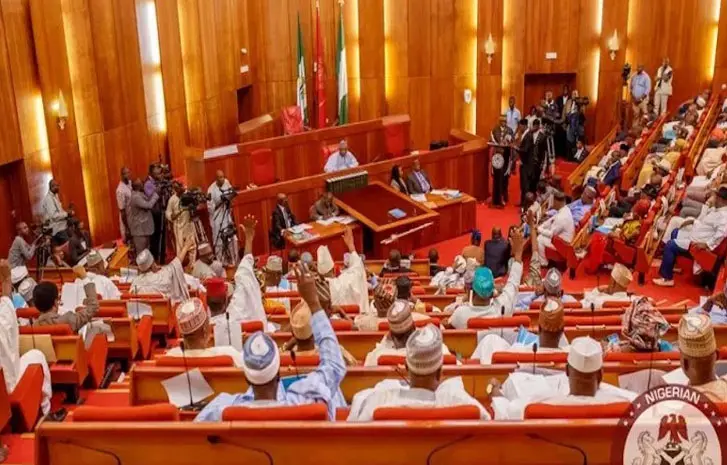
On Wednesday, the Senate deliberated on a bill proposing the establishment of a National Internship and Unemployment Benefit Scheme.
Following a presentation by Senator Shuaib Salisu (APC, Ogun Central), the bill was passed for a second reading. Senator Salisu outlined that the legislation aims to provide unemployed graduates in Nigeria with part-time job opportunities to gain experience and earn stipends.
Additionally, the bill aims to compile a database of unemployed Nigerian youths, particularly graduates, based on their disciplines. It also seeks to create a framework for offering part-time jobs to youths while they search for full-time employment.
If implemented, the scheme would offer hope to graduates, allowing them to gain valuable experience before securing permanent jobs and potentially addressing issues of insecurity and criminal activities linked to unemployment.
While noting the presence of agencies like the National Directorate of Employment (NDE) and the Industrial Trust Fund (ITF), Senator Salisu highlighted that their impact has not been fully optimized for beneficiaries.
Senator Salisu is confident that the proposed scheme, with its structured database, would be more efficient in delivering interventions for the beneficiaries.
While most senators expressed support for the bill, Senator Ahmed Wadada (SDP, Nasarawa West) suggested that the focus should be on creating a conducive environment for the private sector to flourish and subsequently generate employment opportunities instead of relying solely on benefit schemes for the unemployed.
Senator Wadada emphasized, “If the environment is conducive enough to support multiple successful ventures like Dangote’s, unemployment rates will significantly decrease. The primary focus should always be on creating the necessary environment for growth.”
Upon the bill’s advancement to a second reading, Senate President Senator Godswill Akpabio instructed the Senate Committee on Labour and Productivity to provide further legislative insights and furnish a report within four weeks.
